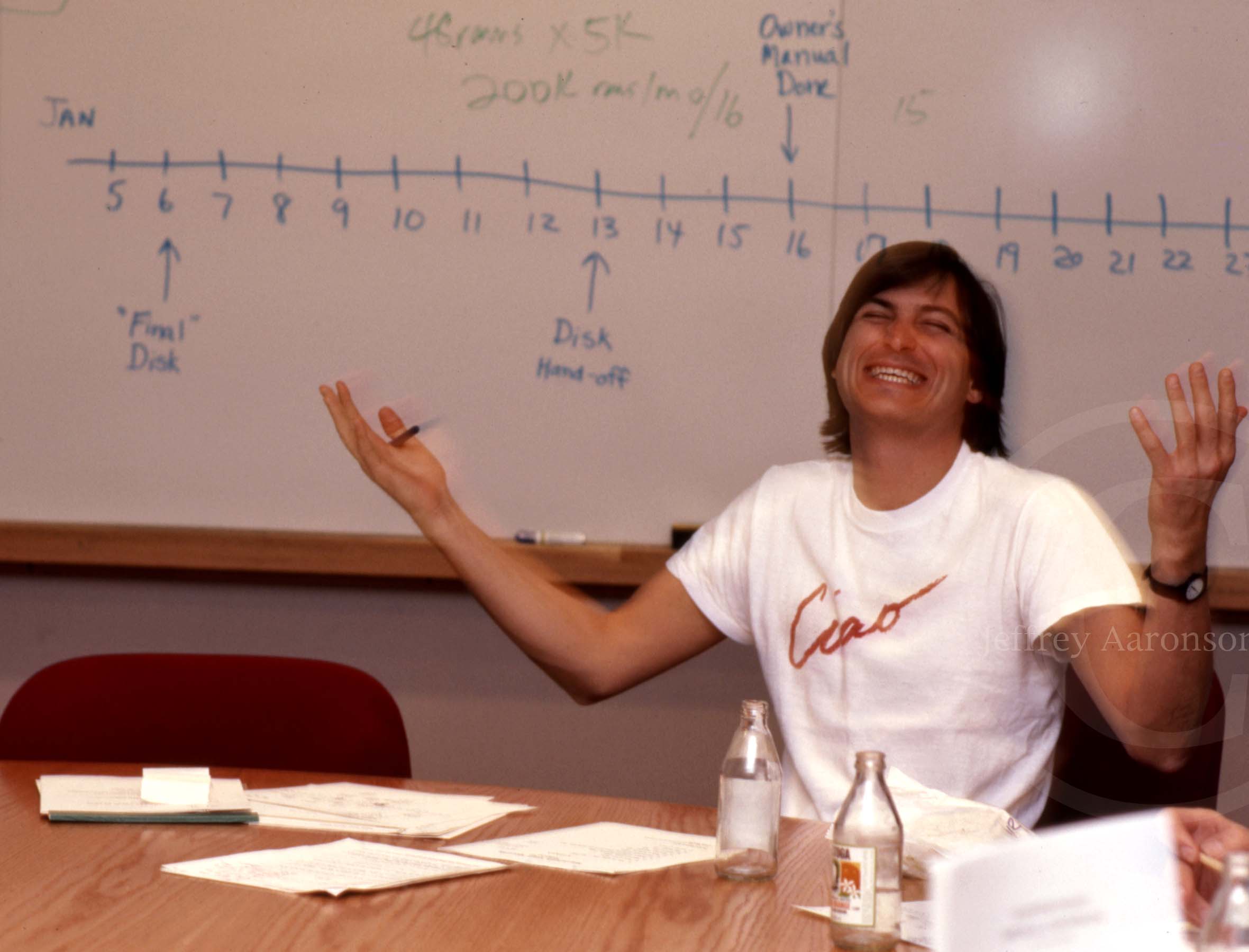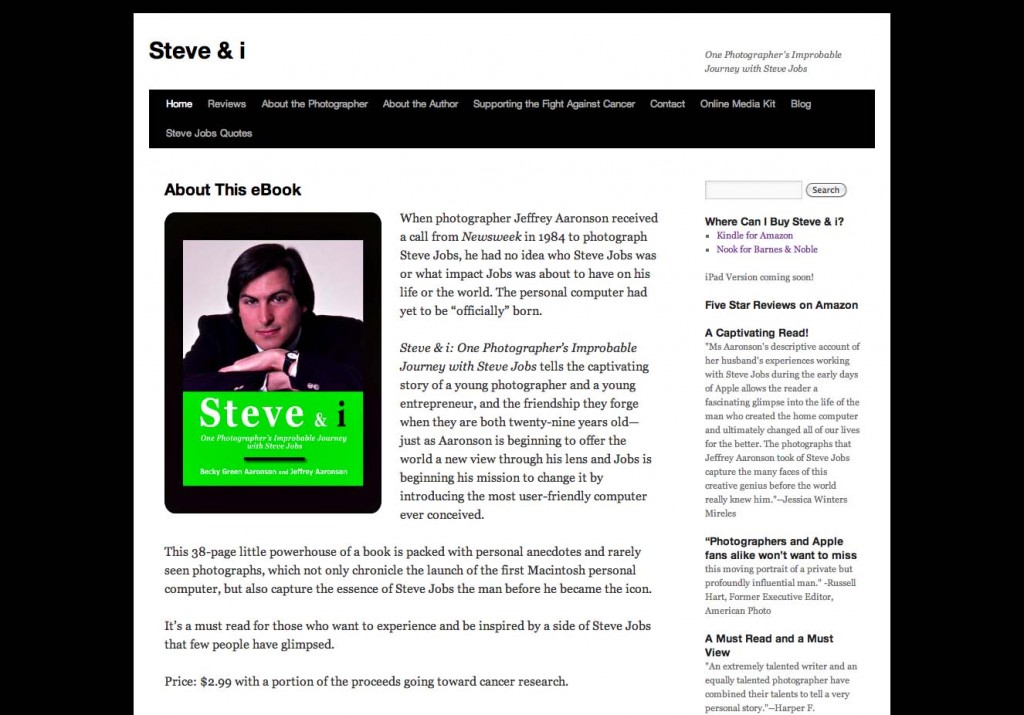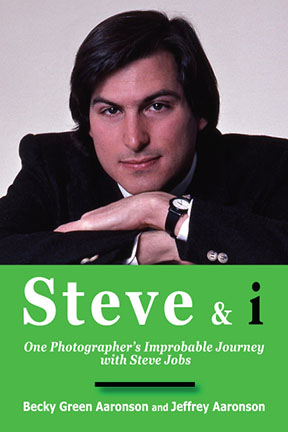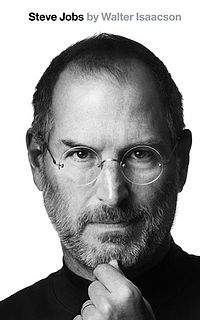 I start this review by confessing I’m exhausted after reading Walter Isaacson’s behemoth authorized biography, Steve Jobs—not because of the mass of this book, but because of the continual upheaval described throughout. I never imagined when I picked it up to read I’d be left reeling, grateful when it finally ended.
I start this review by confessing I’m exhausted after reading Walter Isaacson’s behemoth authorized biography, Steve Jobs—not because of the mass of this book, but because of the continual upheaval described throughout. I never imagined when I picked it up to read I’d be left reeling, grateful when it finally ended.
Don’t get me wrong, Isaacson’s well-written book deserves kudos, especially the magnitude of his research and interviews, but I had a hard time reading anecdote after anecdote about what an ass Steve Jobs was. It was thoroughly depressing—especially since his genius and passion pump a large dose of admiration through my veins.
This 656-page book, which chronicles Jobs’ life and personality, and his passion for perfection, is based on more than forty interviews with Jobs, conducted over two years – as well as interviews with a large cast of characters—including family members, friends, adversaries, competitors and colleagues.
Isaacson, who has also written biographies about Albert Einstein and Benjamin Franklin, clearly knows how to delve into the complexities of the genius mind. Unfortunately, the picture he paints of Steve Jobs, the man who helped revolutionize personal computing, animated movies, music, phones, tablet computing and digital publishing, is not pretty.
Jobs was eccentric by any measure of the word—just flash back to his barefoot, hippy commune days or read about his extreme vegan diet or living in a house without furniture—but according to the loudest voices in this book, he was also controlling, manipulative, and down-right mean. One referred to him as an “assaholic.” Another a narcissicist. Another a bully. Many claimed he lived in a “reality distortion field.” Some wondered if he was mildly bi-polar with his extreme highs and lows and his black-and-white view of the world (Jobs thought ideas were either brilliant or “shit,” but never in between).
Whatever the case, there’s no denying the impact he made on our lives with his ability to inspire those around him, see the big picture, and pour himself into the smallest details of each product Apple created. He may not have been warm and cuddly, and he may have had an ego larger than North America, but somehow he was able to bring out the best in people. And with those exceptional people on his team, Apple and Pixar managed to develop some of the most innovative products ever created, merging art and technology.
The most interesting part of this book for me was the history; discovering the origins of many of the Apple products I’ve used over the years, and seeing how the symbiotic relationship between Jobs and Steve Wozniak evolved into the creation of the first personal computer. Being a design-lover, I was also fascinated by Apple’s design guru, Jonathon “Jony” Ive. It’s impossible not to appreciate the depth of thought he and Jobs invested in every detail of every Apple product created—from the handles and buttons to the colors and curves. The two were perfectly paired in their pursuit of exquisite design because neither settled, and both genuinely respected one another.
Then there’s the creation of iTunes and the iPod. Jobs’ passion for music and his vision of making music easily accessible (through Apple’s proprietary and extremely profitable portal and gadgets) not only resuscitated the stagnant music industry—it restructured it, and in the process also helped re-introduce greats like Bob Dylan to a whole new generation of fans.
If I had one criticism of the book, it’s that it felt lopsided toward the dramatic “dark side” of Steve Jobs. While it makes for riveting reading—almost like a Silicon Valley soap opera, with explosive boardroom drama, quirky personalities, illegitimate children, and scorned business partners—there is another side of Steve Jobs hardly mentioned in this book. That’s the side my husband, Jeffrey Aaronson, knew: one that was gracious and generous, intense, yet funny and charismatic. I wonder how many other friends of Steve Jobs weren’t interviewed for this book who had similar experiences?
Also as I read page after page, I couldn’t help feeling sorrow for the Jobs children—in a protective, motherly sort of way. Even though Jobs asked Isaacson to write this book so his kids would know him better, and even though Jobs’ wife, Laurene Powell, told Isaacson, “There are parts of (Steve’s) life and personality that are extremely messy…You shouldn’t whitewash it. He’s good at spin, but he also has a remarkable story, and I’d like to see that it’s all told truthfully,” –it’s hard to imagine this would be easy for the kids. They seem worldly and wise, but my hope is they hold off reading it until they are well into adulthood, when their grief has faded, and their canvas of memories has been colored by the paintbrush of life. Perhaps then, this raw and detailed book might feel like the gift their father meant it to be.
For the rest of us, Isaacson’s book is a gift worth reading now. Even if it could have been edited tighter and had a little more balance, it captures an important moment in our history and reveals the passion, genius, and commitment of the man who changed our modern world (flaws and all).
Rating: 4 1/2 stars out of 5.
How about you? What do you think of the book? And what do you think about Steve Jobs?
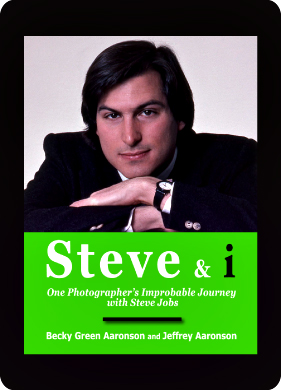 After sixty-five days in Apple’s “review process,” our ibook, Steve & i is finally available for purchase in the iTunes store.
After sixty-five days in Apple’s “review process,” our ibook, Steve & i is finally available for purchase in the iTunes store.